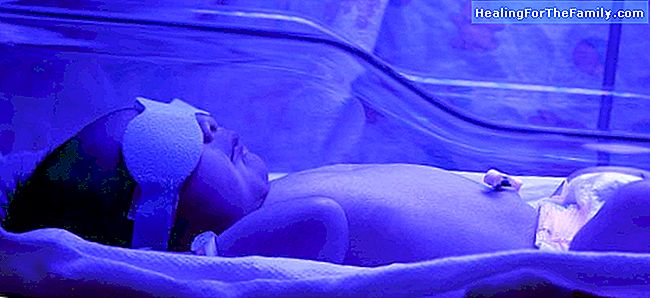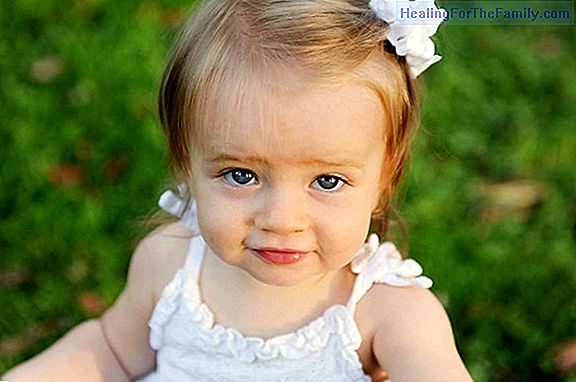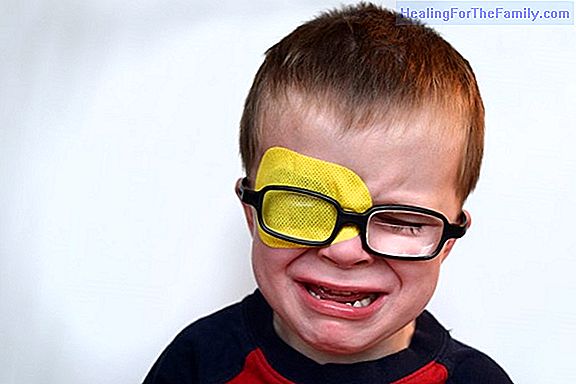Causes of jaundice in the newborn
Jaundice is defined as the yellowing of the skin and mucous membranes. It occurs as a result of the increase in bilirubin in the blood. It is very common among newborns, since suddenly their liver has to work to eliminate bilirubin (when it was in the mother's womb, it was the placenta that did it)
Jaundice is defined as the yellowing of the skin and mucous membranes. It occurs as a result of the increase in bilirubin in the blood. It is very common among newborns, since suddenly their liver has to work to eliminate bilirubin (when it was in the mother's womb, it was the placenta that did it) and it often takes a while to perform this function.
Most frequent causes of icterus in newborns

The most frequent causes of jaundice in newborn babies are two:
- Physiological jaundice. It is mild, it does not usually require income. It is secondary to hemolysis (this word means 'breakage of red blood cells') that usually appears in the first hours of life. It runs with jaundice between days 2 and 7 of life, approximately. It may be a little more pronounced in premature newborns and usually does not require any treatment.
- Jaundice due to breast milk. It is also usually mild. It occurs because breast milk contains substances called 'pregnanes', which make it difficult to eliminate bilirubin. It begins at 7 days of life, and stays until the month, approximately.
When they have to admit a newborn in the emergency room
Very high free bilirubin in the blood can be deposited in the brain, and generate neurological problems.
The causes that most frequently generate income for this reason in the Neonatal Units are the jaundices due to Rh incompatibility (when the baby is Rh positive, the mother is Rh positive and there has been a previous sensitization) and to group incompatibility AB0 ( when the baby is A or B, and the mother is from group 0). The first of these two situations can be prevented, through the administration of specific immunoglobulins to Rh negative pregnant women.
Other causes of major jaundice include sepsis, connatal infections, and internal bleeding.
Treatment of jaundice in newborns
The usual treatment of jaundice is phototherapy. Phototherapy consists of placing the newborn under a light source. Ultraviolet radiation facilitates the conjugation and elimination of excess bilirubin.
If the excess bilirubin is very important, the patient's blood must be exchanged (exanguinotransfusion).












